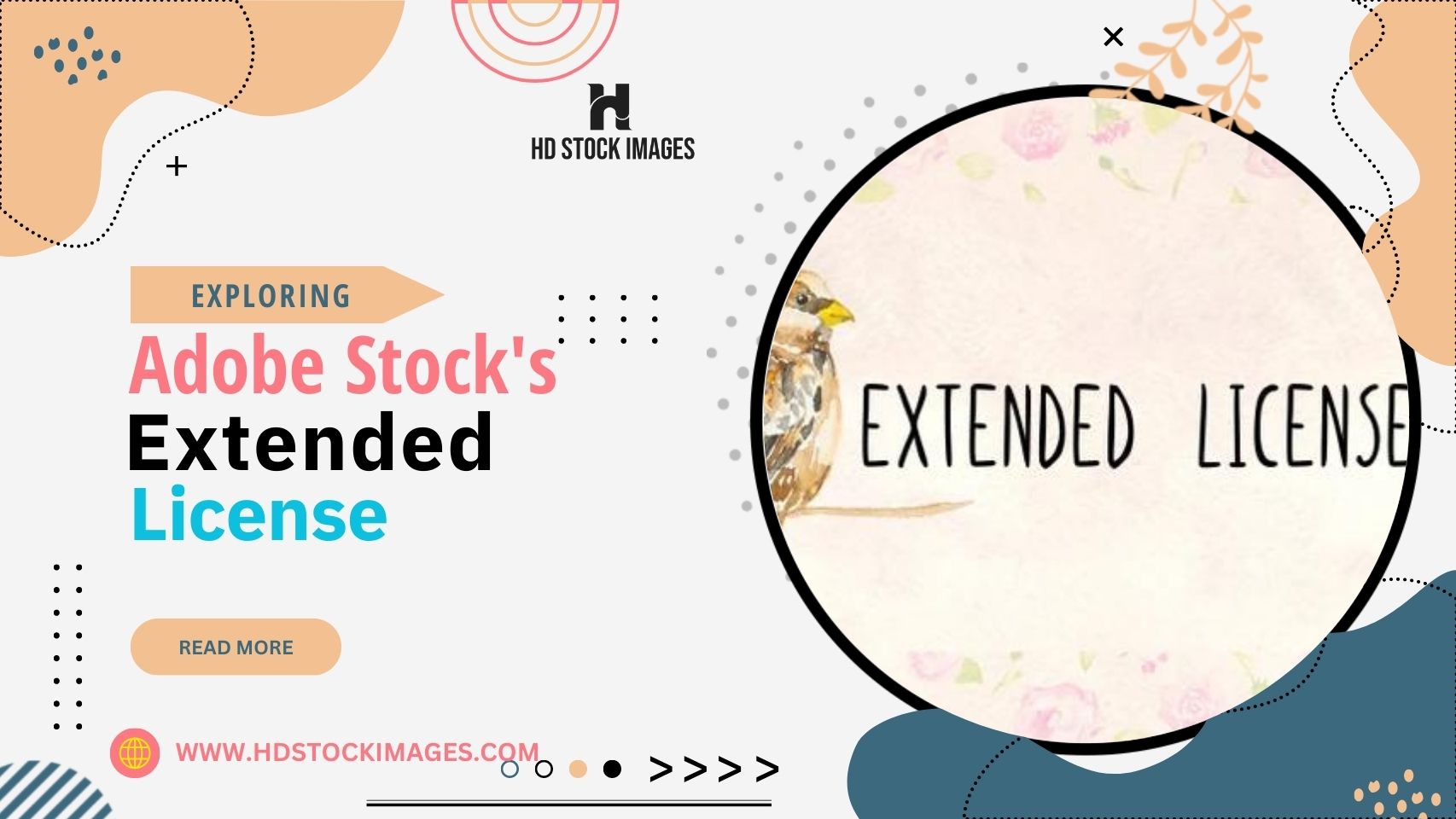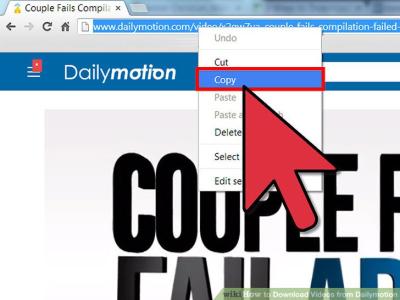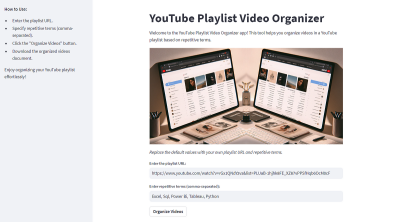1. Introduction
In the world of stock photography, the scope of image usage is expanding through Adobe Stock's Extended License. This transformative option offers buyers the opportunity to go beyond standard licensing, unlocking an array of usage possibilities for their creative projects. By delving into the realm of extended licenses, buyers can tap into a new level of versatility, enabling commercial printing, merchandise incorporation, and even integration into digital products.This blog post takes a deep dive into Adobe Stock's Extended License, revealing how it empowers buyers to elevate their creative endeavors and embrace a broader spectrum of usage opportunities, redefining the way imagery is harnessed for commercial and artistic ventures.Also Read This: How to Build a Winning Behance Portfolio
2. Understanding Extended Licenses
 Extended licenses in stock photography expand the possibilities for image usage beyond the standard licensing options. Unlike standard licenses that come with limitations, extended licenses offer buyers greater flexibility and broader rights for their creative projects. Understanding extended licenses is crucial for both buyers and contributors on platforms like Adobe Stock.1. Enhanced Usage Rights: Extended licenses grant buyers more extensive rights to use images for commercial purposes. This includes applications such as merchandise, branding, and products for resale.2. Commercial Printing and Merchandise: Buyers can use images with extended licenses in materials like brochures, posters, and merchandise such as t-shirts or mugs, enhancing promotional campaigns and branding efforts.3. Templates and Digital Products: Extended licenses allow images to be incorporated into templates and digital products for resale, catering to the needs of graphic designers, web developers, and content creators.4. Film, Television, and Video Games: Images with extended licenses can be used in film, television, and video game projects, providing a valuable resource for visual storytelling across various media.5. Limitations to Note: While extended licenses broaden usage rights, certain restrictions still apply. Images cannot be resold or distributed as standalone assets, and editorial restrictions may remain for sensitive subjects.6. Costs and Considerations: Extended licenses come at an additional cost compared to standard licenses. Factors influencing pricing include image resolution and the intended scale of usage.7. Flexibility for Businesses and Creatives: Extended licenses cater to businesses needing images for branding and product packaging, as well as creative professionals seeking assets for client projects and commercial ventures.8. How to Obtain an Extended License: On platforms like Adobe Stock, buyers can acquire extended licenses by selecting the desired image and choosing the appropriate licensing option during the purchasing process.9. Choosing the Right License: Buyers should carefully assess their usage needs to determine whether an extended license is necessary. This helps ensure they're investing in the most suitable licensing option.As extended licenses reshape the landscape of stock photography, understanding their implications empowers buyers to make informed decisions that align with their creative goals. With extended licenses, imagery becomes a dynamic tool capable of enriching a wide array of creative and commercial projects.
Extended licenses in stock photography expand the possibilities for image usage beyond the standard licensing options. Unlike standard licenses that come with limitations, extended licenses offer buyers greater flexibility and broader rights for their creative projects. Understanding extended licenses is crucial for both buyers and contributors on platforms like Adobe Stock.1. Enhanced Usage Rights: Extended licenses grant buyers more extensive rights to use images for commercial purposes. This includes applications such as merchandise, branding, and products for resale.2. Commercial Printing and Merchandise: Buyers can use images with extended licenses in materials like brochures, posters, and merchandise such as t-shirts or mugs, enhancing promotional campaigns and branding efforts.3. Templates and Digital Products: Extended licenses allow images to be incorporated into templates and digital products for resale, catering to the needs of graphic designers, web developers, and content creators.4. Film, Television, and Video Games: Images with extended licenses can be used in film, television, and video game projects, providing a valuable resource for visual storytelling across various media.5. Limitations to Note: While extended licenses broaden usage rights, certain restrictions still apply. Images cannot be resold or distributed as standalone assets, and editorial restrictions may remain for sensitive subjects.6. Costs and Considerations: Extended licenses come at an additional cost compared to standard licenses. Factors influencing pricing include image resolution and the intended scale of usage.7. Flexibility for Businesses and Creatives: Extended licenses cater to businesses needing images for branding and product packaging, as well as creative professionals seeking assets for client projects and commercial ventures.8. How to Obtain an Extended License: On platforms like Adobe Stock, buyers can acquire extended licenses by selecting the desired image and choosing the appropriate licensing option during the purchasing process.9. Choosing the Right License: Buyers should carefully assess their usage needs to determine whether an extended license is necessary. This helps ensure they're investing in the most suitable licensing option.As extended licenses reshape the landscape of stock photography, understanding their implications empowers buyers to make informed decisions that align with their creative goals. With extended licenses, imagery becomes a dynamic tool capable of enriching a wide array of creative and commercial projects.Also Read This: How to Embed a Behance Project into Your Website
3. Expanded Usage Scenarios
Extended licenses open the door to a multitude of expanded usage scenarios, allowing buyers to harness images for a wide range of creative and commercial purposes beyond what standard licenses offer. Exploring these scenarios reveals the true potential and versatility of images with extended licenses.1. Commercial Printing and Merchandise: Extended licenses enable buyers to incorporate images into printed materials, such as brochures, flyers, and posters. Additionally, images can be used on merchandise like apparel, accessories, and promotional items, amplifying branding efforts.2. Products for Resale: Buyers can integrate images into products for resale, such as calendars, stationery, and artwork. This opens avenues for creative entrepreneurship and revenue generation.3. Templates and Digital Products: Extended licenses empower graphic designers and content creators to include images in templates for sale, like website themes, social media templates, and digital presentations.4. Film, Television, and Video Games: Images with extended licenses find their way into visual storytelling, enriching scenes in films, television shows, documentaries, and video games, offering a visual backdrop to captivating narratives.5. Editorial and Educational Content: Extended licenses permit images to be used in editorial pieces, educational materials, and textbooks, enhancing the visual appeal and effectiveness of content.6. Marketing and Advertising Campaigns: From online campaigns to billboard advertisements, images with extended licenses elevate marketing and advertising initiatives, delivering eye-catching visuals to captivate audiences.7. Presentations and Corporate Communications: Professionals can utilize images in presentations, reports, and corporate communications, adding visual appeal and making information more engaging.8. Event Promotion and Decor: Extended licenses facilitate the integration of images into event materials, such as invitations, banners, and decorations, enhancing the overall aesthetic and theme.9. Interior Design and Decor: Images can be framed and displayed in various settings, from office spaces to residential interiors, adding a touch of creativity and personality to environments.10. Personal Projects: Individuals can use images with extended licenses for personal projects, such as custom gifts, crafts, and hobby-related endeavors.Extended licenses transform images from static assets to versatile tools adaptable to diverse creative and commercial contexts. By embracing these expanded usage scenarios, buyers unlock the potential to amplify their projects with captivating visuals that leave a lasting impact.The following video is about Stock Photo Licencing:Also Read This: Access Getty Images Without Watermark in 2016
4. Value for Businesses and Creative Projects
The value of extended licenses in stock photography extends to businesses and creative projects, offering a range of benefits that elevate visual content and amplify the impact of various endeavors.1. Branding and Marketing: For businesses, extended licenses provide the opportunity to create unique and impactful branding materials. Incorporating images into logos, advertisements, and promotional materials enhances brand recognition and leaves a lasting impression on customers.2. Product Packaging: Extended licenses enable businesses to enhance product packaging with captivating visuals. Eye-catching imagery on packaging materials boosts shelf appeal and attracts consumer attention.3. Advertising Campaigns: Extended licenses allow businesses to craft attention-grabbing visuals for marketing campaigns. High-quality images add professionalism and aesthetic appeal to advertisements across various media platforms.4. Creative Projects: Artists, designers, and content creators benefit from extended licenses when working on client projects. The versatility of extended licenses supports the realization of unique creative visions.5. Web Design and Content Creation: Web designers and content creators can utilize images with extended licenses to enhance website aesthetics and user experience. Visual appeal contributes to higher engagement and prolonged user interaction.6. Social Media Content: Extended licenses offer a rich palette of visuals for social media content creation. Eye-catching images boost engagement and drive traffic to social media profiles and websites.7. Editorial and Publication: Writers, journalists, and publishers can enhance articles, reports, and publications with relevant images. Extended licenses enrich the visual storytelling aspect of editorial content.8. Event Promotion: Extended licenses facilitate the creation of compelling visuals for event promotion. From invitations to banners, impactful images contribute to successful event campaigns.9. Customized Merchandise: Businesses can create customized merchandise for promotional purposes. Extended licenses enable the integration of images into products that resonate with target audiences.10. Creative Freedom: Extended licenses empower creatives to experiment and innovate. The ability to use images in unconventional ways encourages unique artistic expressions.By embracing extended licenses, both businesses and creative professionals gain a competitive edge, enabling them to communicate ideas effectively, engage audiences, and stand out in a crowded visual landscape. These licenses are a gateway to unlocking the full potential of visual content across a spectrum of projects and initiatives.Also Read This: Shutterstock Images Reverse Image Search: Discover Similar or Exact Images
5. Licensing Costs and Considerations
Licensing costs and considerations play a pivotal role in the decision-making process for buyers exploring extended licenses in stock photography. Understanding the pricing structure and evaluating the cost-effectiveness of extended licenses is essential for making informed choices.| Factors | Description |
|---|---|
| 1. Pricing Structure | Extended licenses incur an additional cost compared to standard licenses. Pricing varies based on image resolution and intended usage. |
| 2. Image Resolution Impact | Higher-resolution images have higher licensing costs due to potential use in larger-scale formats like print. |
| 3. Usage Type | The nature of usage significantly affects the cost. Categories like commercial printing, merchandise, and templates may have distinct pricing tiers. |
| 4. Cost-Benefit Analysis | Buyers should assess if the expanded usage rights align with project budget and goals through a cost-benefit analysis. |
| 5. Return on Investment (ROI) | Consider the potential ROI when using images with extended licenses. Enhanced impact and customer attraction can make the investment worthwhile. |
| 6. Budget Allocation | Allocate part of the project budget to licensing, especially when extended licenses are crucial for project success. |
| 7. Volume Discounts | Some platforms offer volume discounts for multiple extended license purchases, advantageous for businesses needing numerous images. |
| 8. Long-Term Usage | Extended licenses hold value for projects with prolonged usage or future projects, as the initial investment remains valuable over time. |
| 9. Weighing Alternatives | Evaluate if expanded rights provided by extended licenses outweigh costs, particularly for substantial projects where flexibility is essential. |
| 10. Value Proposition | The value of images with extended licenses includes enhanced visual appeal, professionalism, and potential for increased engagement, justifying the cost. |
Also Read This: A Complete Guide to Editing RAW Images in Adobe Lightroom
6. How to Obtain an Extended License
Obtaining an extended license for stock images involves a straightforward process that ensures you have the appropriate rights for expanded usage. On platforms like Adobe Stock, securing an extended license can be done following these steps:1. Select the Image: Choose the image you wish to use with an extended license. Ensure it aligns with your project's requirements and goals.2. Check Licensing Options: When viewing the image, explore the licensing options provided by the stock photography platform. Look for the option that offers extended usage rights.3. Review Usage Terms: Carefully read and understand the terms associated with the extended license. This includes the specific usage scenarios allowed and any limitations that still apply.4. Add to Cart: Select the extended license option and add the image to your cart. Verify that the license type you've chosen is reflected in your order.5. Checkout and Payment: Proceed to the checkout process. Provide the necessary information and complete the payment for the extended license. Some platforms offer secure payment gateways for your convenience.6. Download with Extended License: After completing the payment, you will receive a confirmation. The image will be available for download with the extended license, granting you the expanded usage rights.7. Keep Documentation: Store the licensing documentation, including the receipt and any terms of use, for your records. This documentation serves as proof of your rights to use the image as per the extended license.8. Adhere to Usage Guidelines: Ensure that your usage of the image adheres to the terms outlined in the extended license. Follow any restrictions or guidelines provided to maintain compliance.9. Project Implementation: Incorporate the image into your project as per the extended license's usage rights. This might involve printing, digital integration, or other forms of utilization.10. Enjoy Expanded Possibilities: With the extended license, you gain the freedom to use the image in ways that go beyond standard licensing. Enjoy the enhanced creative potential and impact it brings to your project.Obtaining an extended license enables you to harness the full potential of stock images for your creative or commercial ventures. By following these steps and understanding the usage rights, you can confidently integrate captivating visuals into your projects with expanded opportunities for creativity and impact.adopt, didn’t know i subscribed to adobe stock so i had to fork over the cancellation fee. augh
details are in the image and alt text! basically i’ll look at anything 50 and above. monies are prioritized but art can be included as an add onRTs appreciated :’D pic.twitter.com/zs3uy2vCCS— felty (@feltyninja) August 11, 2023
Also Read This: Timeline for the Adobe Stock Review Process
7. Tips for Buyers
 For buyers considering extended licenses for stock images, here are some valuable tips to ensure you make the most of this option and achieve your project goals effectively:1. Understand Your Project Needs: Clearly define how you intend to use the image. Identify the specific usage scenarios where the extended license will provide value.2. Review Licensing Terms: Thoroughly read and comprehend the terms of the extended license. Understand what is allowed and any restrictions that still apply.3. Compare Costs and Benefits: Evaluate the cost of the extended license against the benefits it brings to your project. Consider the potential impact on engagement, branding, and overall project success.4. Choose High-Quality Images: Select images with high resolution and visual appeal. A well-executed image will have a more significant impact on your project's effectiveness.5. Plan for Future Usage: If you foresee potential long-term or multiple uses for the image, an extended license may be a cost-effective investment.6. Consult Licensing Support: If you have questions about licensing terms or specific usage scenarios, reach out to the stock photography platform's customer support for clarification.7. Keep Documentation: Maintain records of your extended license purchase, including receipts and licensing terms. This documentation serves as proof of your rights to use the image.8. Stay Compliant with Terms: Adhere to the guidelines and restrictions outlined in the extended license. Non-compliance could lead to legal issues or license revocation.9. Experiment with Creativity: An extended license allows for diverse usage. Experiment with different placements, formats, and adaptations to optimize the image's impact.10. Measure Impact: Assess how the image with the extended license positively impacts your project's objectives, whether it's increased engagement, sales, or brand recognition.11. Continuously Monitor Usage: Keep track of how the image is being used and ensure it remains within the terms of the extended license. Regularly assess its effectiveness in achieving your goals.12. Explore Bulk Purchase Options: If you have multiple projects or a consistent need for extended licenses, inquire about volume discounts or subscription plans that offer cost savings.Extended licenses offer a valuable opportunity to maximize the potential of stock images for your projects. By considering these tips and strategizing your usage, you can leverage extended licenses to enhance the visual appeal and effectiveness of your creative and commercial endeavors.
For buyers considering extended licenses for stock images, here are some valuable tips to ensure you make the most of this option and achieve your project goals effectively:1. Understand Your Project Needs: Clearly define how you intend to use the image. Identify the specific usage scenarios where the extended license will provide value.2. Review Licensing Terms: Thoroughly read and comprehend the terms of the extended license. Understand what is allowed and any restrictions that still apply.3. Compare Costs and Benefits: Evaluate the cost of the extended license against the benefits it brings to your project. Consider the potential impact on engagement, branding, and overall project success.4. Choose High-Quality Images: Select images with high resolution and visual appeal. A well-executed image will have a more significant impact on your project's effectiveness.5. Plan for Future Usage: If you foresee potential long-term or multiple uses for the image, an extended license may be a cost-effective investment.6. Consult Licensing Support: If you have questions about licensing terms or specific usage scenarios, reach out to the stock photography platform's customer support for clarification.7. Keep Documentation: Maintain records of your extended license purchase, including receipts and licensing terms. This documentation serves as proof of your rights to use the image.8. Stay Compliant with Terms: Adhere to the guidelines and restrictions outlined in the extended license. Non-compliance could lead to legal issues or license revocation.9. Experiment with Creativity: An extended license allows for diverse usage. Experiment with different placements, formats, and adaptations to optimize the image's impact.10. Measure Impact: Assess how the image with the extended license positively impacts your project's objectives, whether it's increased engagement, sales, or brand recognition.11. Continuously Monitor Usage: Keep track of how the image is being used and ensure it remains within the terms of the extended license. Regularly assess its effectiveness in achieving your goals.12. Explore Bulk Purchase Options: If you have multiple projects or a consistent need for extended licenses, inquire about volume discounts or subscription plans that offer cost savings.Extended licenses offer a valuable opportunity to maximize the potential of stock images for your projects. By considering these tips and strategizing your usage, you can leverage extended licenses to enhance the visual appeal and effectiveness of your creative and commercial endeavors.
 admin
admin








